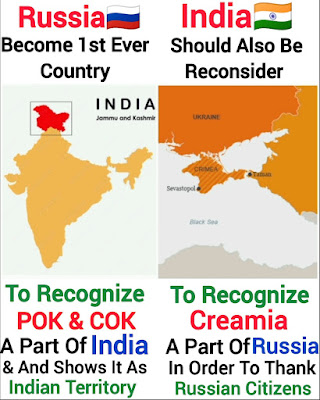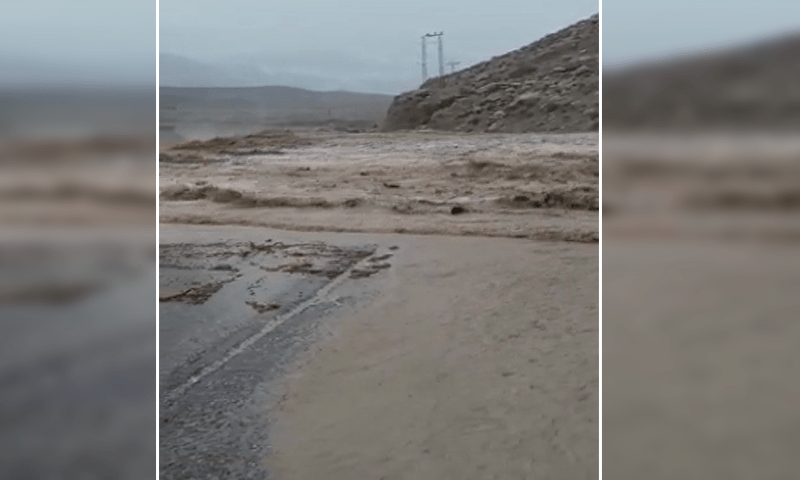Creamia & Kashmir mutual recognition by india & Russia?
When leader of Soviet Union Nikita Khrushchev visited India in 1955 he famously remarked, "We are so near that if ever you call us from the mountain tops we will appear at your side." This is the spirit that defined Soviet and continue to shape Russian support for India on the Kashmir issue whether at UN or at other for a including bilateral formats.
While the Moscow has formed closer partnership Beijing as part of their global strategy to counter USA, the two do not share similar views on the Kashmir issue. China is in favour of internationalising the matter but Russia has consistently favoured a solution under bilateral format. However, this fact often remains underreported and unrecognised in the current discourse of international relations as Khrushchev’s remarks remain buried in the annals of history.
However, Moscow through the decades, has not diluted its position for its strategic partner in South Asia. It is no secret that erstwhile Soviet Union had vetoed number of resolutions on Kashmir in UNSC during the Cold War period and blocked internationalisation of what is essentially a bilateral issue. In the UN Security Council Resolutions in 1957, 1962 and 1971, Russia was the only country which vetoed resolutions seeking UN interventions in Kashmir.
And last August Russia became the first P-5 country to describe India's move on Kashmir (scrapping Article 370 & bifurcation of the State) as purely an internal matter and called for resolution under the Shimla Agreement of 1972 and Lahore Declaration of 1999. Ever since this position has been reiterated by Russian Foreign Minister and senior officials.
While many countries have condemned Russia’s actions in the ongoing Crimea crisis, India is the only Asian power that has backed Moscow. In light of this development, DW takes a look at Indo-Russian ties.
Since Russia's annexation of Crimea last month, a lot of international attention has been focused on China's response to Moscow's actions. Although Beijing abstained from voting on Western-backed resolutions condemning the territory's secession from Ukraine - both at the United Nations Security Council (UNSC) and at the General Assembly - it reiterated its support for "the sovereignty and territorial integrity of all states" and refrained from explicitly backing Russia.
Another country which abstained from voting on the UN General Assembly's resolution was China's giant neighbor to the South, India. The country has been the only major Asian power to have defended Moscow so far, with government officials opposing Western attempts at imposing sanctions against Moscow and recently declaring that Russia had "legitimate interests" in Ukraine.
Ravi Neelakantan, a former diplomat and senior fellow at the Bangalore-based Center for Public Policy, explains that New Delhi's close and unparalleled political and military ties with Moscow, dating back to the Soviet-era, are widely regarded as the main reason for India's reluctance to take an anti-Russian stance.



Comments
Post a Comment